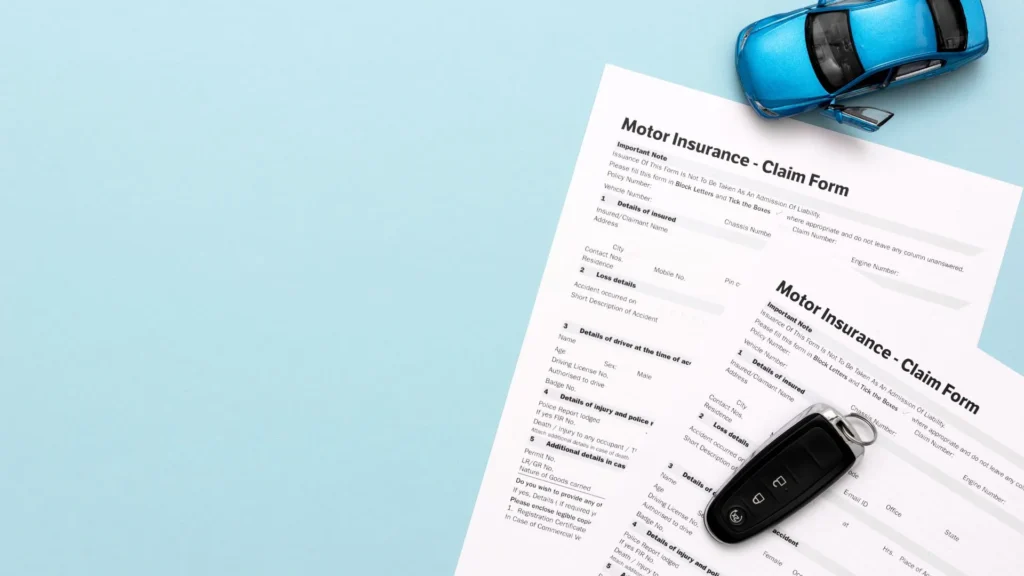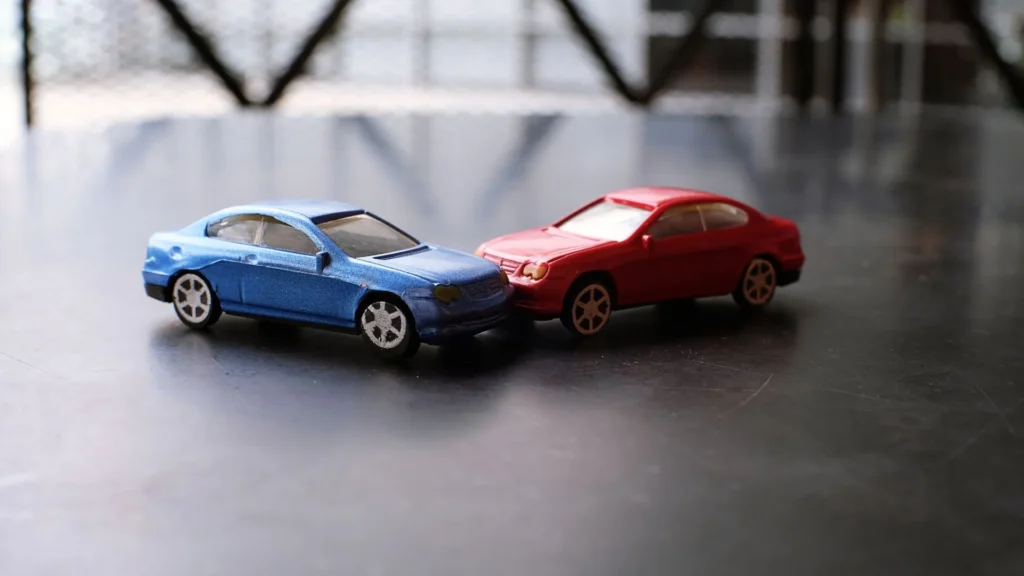Today’s automobiles are technical wonders, propelled by complex electrical systems, performing in the symphony of modern transportation.
However, electrical fires threaten this peace, which can turn our circle of reliability into deadly incendiaries. In such a scenario, a pertinent question to ask is, does car insurance cover electrical fires?
This blog explores the intriguing issue of automobile insurance, explicitly studying coverage for vehicle electrical fires.
We’ll explore the ins and outs of car insurance as we go, considering that not all policies are made equal regarding the potential fire hazards our vehicles face. Also, check out Beem which offers a personalized experience to find the best auto insurance policy for your needs.
Does Car Insurance Cover Electrical Fires?
Yes, car insurance can cover electrical fires, but there are some important details to understand:
Coverage Types
- Comprehensive Coverage: This is the type of coverage that would protect you from an electrical fire. It covers a wide range of non-collision damages, including fire, theft, vandalism, and natural disasters.
- Third-Party Liability Coverage: This basic, mandatory type of insurance covers damage you cause to others in an accident. It will not cover damage to your own car from an electrical fire.
Electrical fires in vehicles are caused by a complicated interaction of elements inside the intricate network of wires, circuits, and electronic components.
Wiring wear and tear can cause insulation to deteriorate over time, making it vulnerable to sparks and heat.
Friction and resistance in these old components might increase, resulting in an igniting point. DIY alterations or subpar repairs can also introduce errors, disturbing the smooth power flow.
Another danger is that electronic components, such as alternators or starters, fail. Consider your car’s electrical system a sensitive ecology in which any disruption—whether caused by aging, changes, or component malfunctions—can set the stage for an electrical fire.
Maintenance vigilance, fast repairs, and comprehensive auto insurance are critical safeguards against the unpredictable and potentially deadly events that may occur inside the area of your vehicle’s electrical system.
What is Comprehensive Coverage in Car Insurance?
Understanding Comprehensive Coverage in auto insurance entails looking into the layers of protection that extend beyond the basic mandates of India’s Motor Vehicles Act.
While a Third-party Plan meets the legal requirement by protecting liabilities owed to third parties, Comprehensive Cover provides a more robust option.
This comprehensive plan meets the required requirements and includes Own Damage coverage. It means that damages to the insured car are covered, which is invalid with simple liability-only policies.
Despite the higher premium, this plan offers superior coverage. Furthermore, it can customize coverage with add-ons such as Consumables or Roadside Assistance.
The ease with which internet processes allow for research and comparison of programs provides a well-informed conclusion.
Also Read: Does Car Insurance Cover Electrical Problems?
How to Make A Claim for A Burnt Car?
Claiming insurance reimbursement after your automobile burns down is a systematic way to deal with the consequences.
First, swiftly contact the insurance company and the police about the event. This quick response makes it easier to do a spot survey, an essential part of finding a solution. At the same time, the insurer may want a full incident report (FIR) to use in their investigation. Here’s how to file a claim for a burnt car:
- Contact your insurance via phone, email, or through a platform like Beem, which provides holistic solutions.
- Inform your insurance company that you intend to file a claim for fire damage to your vehicle.
- Submit the required paperwork to the insurance company.
- The insurer will send out a surveyor to investigate the wreckage and identify the root of the problem. Working with the surveyor and providing truthful responses to their questions is essential.
- The insurance will accept or deny the claim based on the surveyor’s findings. If your insurance claim is valid, you can rely on receiving payment for either the actual cost of repairs or the Insured Declared Value. If you are not accepted, you will receive detailed comments on how to make your next application stronger.

Documents Needed to File A Claim
Gathering the relevant documentation is critical to ensuring a smooth claim resolution procedure. The following documents are needed to file a claim for Insurance Cover Vehicle Electrical Fires:
- Insurance Policy Copy: Ensure it is accompanied by a completed and signed claim form.
- FIR and Final Report of Inquiry: These official records corroborate the incident and its inquiry.
- Assessment or Survey Study: If relevant, this offers documentation of damage to the insured vehicle.
- Newspaper Clipping with Protest Information: It is required when protests are relevant to the claim.
- Original Replacement or Repair Bills: It required paperwork for reimbursement and evaluation.
- Claim Form: The claim form is a list required by the specific car insurance carrier.
- First Information Report (FIR): From the competent police authority, which provides formal details of the incident.
- Final Investigative Report: It is an additional layer of investigative documentation.
- Car Insurance Policy: The main document describes coverage specifics.
- Fire Department Report: Critical incidents involving the fire department.
- Newspaper Clippings Featuring Riots: Specific to vandalism instances faced during incidents, if any.
- Repair Bills: Original car repair bills are essential for certifying repair charges and assessing claims.
Claim Rejection Scenarios
To ensure a successful claim settlement, paying close attention to specific requirements and strictly adhering to the indicated policy conditions in the applicable Policy language is critical. Here’s a more in-depth look at some of the most prevalent reasons for claim rejections:
Mechanical Flaws
- Fuel Seepage: Claims may be denied if the fire was caused by fuel seepage, which poses a significant safety risk.
- Oil Leakage: Fires caused by oil leakage may suggest negligence, resulting in claim denial.
- Engine Overheating: Claims may be denied if engine overheating is the fundamental cause, indicating probable vehicle maintenance difficulties.
- Excessive Pressure on Vehicle Components: Fires caused by excessive pressure on susceptible vehicle components may be grounds for rejection, highlighting the significance of regular maintenance.
Damaged Wiring
Fires generated by sparks from a tear in the car’s electrical wiring system may result in a claim denial, highlighting the need to maintain an intact wiring infrastructure.
Battery Sparks
- Inability to Sustain Accessories: Claims may be denied if the car’s battery generates sparks and the vehicle cannot support additional external accessories. It emphasizes the significance of determining the compatibility of new components.
Modifications
- Air Conditioners or LPG Gas Kits: Installing or replacing accessories such as air conditioners or LPG gas kits might result in a claim denial, highlighting the importance of transparency and adherence to insurance standards when altering vehicles.
Tampering with Wiring
- Detecting or Short Circuits: Fires caused by tampering with electrical wiring, particularly for additional equipment such as amplifiers, may result in claim rejection. It emphasizes the significance of careful customization and electrical adjustments.
Conclusion
More than just an insurance policy can help you keep your car safe on the road, especially if you live in an area prone to wildfires.
It’s becoming clear that not all auto insurance policies are the same as we delve deeper into topics like Insurance Cover Vehicle Electrical Fires and the standardized claims process.
To answer the question, “Does car insurance cover electrical fires?”, it’s crucial to ensure key aspects are included in your auto insurance coverage.
Beem’s cutting-edge features allow for streamlined procedures and complete protection. Beem assures you that your insurance experience will be more than a shield but a personalized and dependable companion as you navigate the unexpected turns of vehicular obstacles.
FAQs
Does car insurance cover electrical wiring?
In most cases, yes, auto insurance includes electrical wiring in full coverage. Electrical fires, short circuits, and other problems with the vehicle’s wiring system are all covered under this policy. It ensures that the insurance policy covers losses caused by electrical failures by providing financial protection for repair or replacement costs.
Why do insurance claims on EVS catching fire get rejected?
Many variables can lead to an insurance company not paying out on a claim for insurance coverage for vehicle electrical fires. Claims may be rejected for various reasons, including but not limited to manufacturing flaws, poor alterations, and violations of safety requirements. Additionally, tampering with the electric system, inadequate maintenance, or using unapproved charging equipment may be grounds for rejection, underlining the necessity of responsible ownership and attention to safety regulations.





























